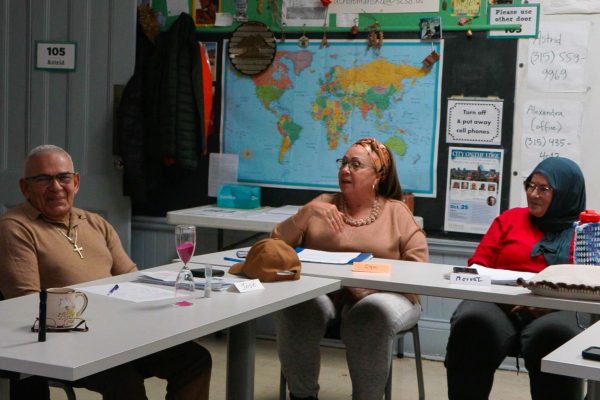SYRACUSE, N.Y. (NCC News) – Tesfahiwot Okube had only 42 days to turn his “miracle from god” into a Syracuse household name.
The name in question is EthioEritrea, the restaurant Okube founded in 2019. The miracle was finding that his three-month-old, 10 table eatery landed on CNN’s list of “20 of the world’s best new restaurants for 2020.”
“Oh my god, the house was full, completely full,” Okube said, describing his restaurant’s sudden international acclaim. “Every time, every day. As soon as we opened at 10 a.m. there was a line outside.”
Unfortunately for Okube, the CNN article published on Feb. 3, 2020 just 42 days before the first confirmed case of COVID-19 hit Onondaga County. Six days later, EthioEritrea, along with all New York restaurants, had to close indoor dining.
Okube’s overnight success came from recreating the Eritrean and Ethiopian culture he grew up with. The pandemic meant he would have to pack all of that culture into take-out boxes.
But Okube is no stranger to change.
Originally from Eritrea, Okube says that the country’s oppressive political climate drove him to move to a refugee camp in neighboring Ethiopia where he lived for seven years.
It was in the refugee camp that Okube opened a small cafe and was able to master his cooking skills. Culinary expertise and recipes that he has since brought to Syracuse.
Walking around EthioEritrea, its walls adorned with hand crafted instruments and paintings of Ethiopian and Eritrean people, it is clear that the place is designed for gathering.
While indoor dining has made a return since the first lockdown orders, Okube said that business is nowhere near his pre-pandemic boom.
“The past year has been quite hard. But we don’t close. We don’t want to lose our customers,” Okube said. “We keep open but we don’t make anything for the past year.”
Despite the headwinds, Okube says that his commitment to his customers and this community is rooted in his Eritrean and Ethiopian culture.
“We don’t think only for ourselves or for one person. We think of everyone as family,” Okube said.




